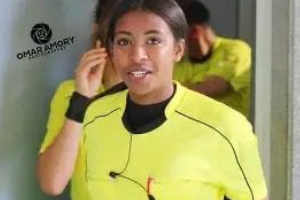Opinions of Friday, 8 May 2015
Columnist: Azindoo, Abubakar Mohammed Marzuq
Literary Discourse: Causative verb
INTRODUCTION
Many of us have come across many types of verbs throughout our studies of English from nursery to university. Among these verb types are Finite Verb, Non-finite Verb, Linking Verb, Auxiliary Verb, Transitive Verb, and Intransitive Verb. However, little do we know or hear about CAUSATIVE VERB. Ironically, almost all of us use it efficiently, especially when we try to run away from undesirable responsibilities. There is, therefore, the need to discuss the overly used but little known verb.
LEARNING OUTCOMES
By the end of this discussion, fellow learners and readers should be able to:
• Identify Causative Verbs in sentences
• Use Causative Verbs correctly.
DEFINITION
A CAUSATIVE VERB is an action verb that causes another action to happen. It is sometimes employed in an attempt to avoid an undesirable responsibility. Examples are MAKE [The President made the minister sack workers], FORCE [Azinpaga forced Kofi to drink alcohol], COMPEL [Intellectual jealousy and hypocrisy compelled me to leave the University College].
USAGE
It is worth mentioning that causative verbs are not only meant to make people avoid taking responsibilities for undesirable happenings. Generally, they are used to indicate the sort of actions that people do not do themselves but allow, ask, or force other people to do. Examples: PERMIT [Rahi permitted Kataali to enter the room]. REMIND [the teacher reminds the students to study hard]. ASK [Marzuq asked Marzuqah to sleep alone].
THINGS TO NOTE IN CAUSATIVE CONSTRUCTION
It is significant to note that in a causative construction, the subject does not actually do the action of the OPERATIVE VERB but only causes the object to do that action. Let us restate the sentence [Marzuq asked Marzuqah to sleep alone] as an illustration. In this sentence, the subject is MARZUQ, and the object MARZUQAH. The causative verb “ask” causes MARZUQAH to do the action of the operative verb – sleeping alone.
COMMON CAUSATIVE VERBS
Among the most commonly used causative verbs are “allow,” “assist,” “convince,” “employ,” “help,” “hire,” “let,” “motivate,” “remind,” “require,” and “urge.” Practically, when used in a sentence, each of these causative verbs is followed by an object (a noun or pronoun) followed by an infinitive. Examples: ALLOW [Wuntiti allowed Abena to attend the French lecture]. ASSIST [Rosemary assisted Njevuri to do the Journalism assignment]. CONVINCE [Abigail convinces students to dress decently]. EMPLOY [As Dean of Students, Azindoo employs diplomacy to solve crises on campus].
EXCEPTIONS
There are exceptions to the above pattern of causative construction. Notable among them are constructions in relation to verbs such as “have,” “make,” and “let.” These are followed by a noun or pronoun functioning as an object, but which is not followed by the “to-infinitive.” Rather, the object is followed by the “base-form-infinitive.” This is the infinitive form without the “to.” Examples: HAVE [Azindoo had the students do the assignment yesterday]. MAKE [The mischief makers made Kofi drag them to court]. LET [Zangina will let his wife cook for all of us].
CONCLUSION
It is important to observe that past and future tenses in causative construction affect only the CAUSATIVE VERB. The OPERATIVE VERB remains in present simple even if the intended communication is to be expressed in past or future. The above examples illustrate this observation: In the first example, we have “had” as CAUSATIVE VERB and “do” as OPERATIVE VERB. In the second one, there are “made” as CAUSATIVE VERB and “drag” as OPERATIVE VERB. The third sentence contains “will let” as CAUSATIVE VERB and “cook” as OPERATIVE VERB. Fellow learner, thanks for your participation and contribution. Suggestions are always welcome to enhance the quality of this fascinating column. Topics of relative grammatical difficulties could be suggested for discussion.
By Abubakar Mohammed Marzuq Azindoo, Coordinator of Students and University Relations, University of Applied Management (UAM), Germany – Ghana Campus, McCarthy Hill, Accra and Tamale
Email: azindoo200@gmail.com Tell: 0244755402














